Document Author
Year Published
- 2015 (29) Apply 2015 filter
- 2013 (18) Apply 2013 filter
- 2016 (18) Apply 2016 filter
- 2021 (13) Apply 2021 filter
- 2020 (11) Apply 2020 filter
- 2014 (10) Apply 2014 filter
- 2017 (8) Apply 2017 filter
- 2018 (8) Apply 2018 filter
- 2011 (6) Apply 2011 filter
- 2010 (5) Apply 2010 filter
- 2012 (5) Apply 2012 filter
- 2003 (4) Apply 2003 filter
- 2005 (4) Apply 2005 filter
- 2007 (4) Apply 2007 filter
- 2008 (4) Apply 2008 filter
- 2009 (3) Apply 2009 filter
- 2000 (2) Apply 2000 filter
- 2004 (2) Apply 2004 filter
- 2019 (2) Apply 2019 filter
- 1975 (1) Apply 1975 filter
- 1988 (1) Apply 1988 filter
- 1995 (1) Apply 1995 filter
- 1999 (1) Apply 1999 filter
- 2002 (1) Apply 2002 filter
- 2014; 2017 (1) Apply 2014; 2017 filter
- 2023 (1) Apply 2023 filter
- SRLN (1) Apply SRLN filter
Topic
- (-) Remove 100% Access to Justice filter 100% Access to Justice
- Research (65) Apply Research filter
- Reports, Evaluations, Best Practices, Surveys (61) Apply Reports, Evaluations, Best Practices, Surveys filter
- Self-Help Centers (59) Apply Self-Help Centers filter
- Strategic Planning (53) Apply Strategic Planning filter
- Trial Court Self-Help (52) Apply Trial Court Self-Help filter
- Courts (46) Apply Courts filter
- Reports (40) Apply Reports filter
- Linking a Self-Help Center to Other Services (28) Apply Linking a Self-Help Center to Other Services filter
- Articles & SRLN Briefs (25) Apply Articles & SRLN Briefs filter
- Allied Professionals (24) Apply Allied Professionals filter
- Ethics Education (23) Apply Ethics Education filter
- Unbundling (23) Apply Unbundling filter
- Simplification (21) Apply Simplification filter
- Judges (20) Apply Judges filter
- Legal Aid (20) Apply Legal Aid filter
- Triage (20) Apply Triage filter
- Technology (19) Apply Technology filter
- Best Practices for Self-Help Centers (18) Apply Best Practices for Self-Help Centers filter
- Private Bar (18) Apply Private Bar filter
- Justice Tech Entrepreneurs (16) Apply Justice Tech Entrepreneurs filter
- Judicial Ethics (15) Apply Judicial Ethics filter
- ATJ Commissions (14) Apply ATJ Commissions filter
- Forms (14) Apply Forms filter
- Best Practices (10) Apply Best Practices filter
- Evaluation (10) Apply Evaluation filter
- Plain Language & LEP (10) Apply Plain Language & LEP filter
- Libraries (9) Apply Libraries filter
- Presentations (9) Apply Presentations filter
- Starting a Self-Help Center (9) Apply Starting a Self-Help Center filter
- Working Groups (9) Apply Working Groups filter
- Surveys (8) Apply Surveys filter
- Triage & Service Portal (8) Apply Triage & Service Portal filter
- Forms (7) Apply Forms filter
- Human Centered Design (7) Apply Human Centered Design filter
- Map Gallery (7) Apply Map Gallery filter
- Plain Language (7) Apply Plain Language filter
- Scaling in Court Systems (7) Apply Scaling in Court Systems filter
- Funding (6) Apply Funding filter
- Justice for All (6) Apply Justice for All filter
- Law Schools (6) Apply Law Schools filter
- Managing a Self-Help Center (6) Apply Managing a Self-Help Center filter
- Attorney Ethics (5) Apply Attorney Ethics filter
- Constitutional Issues (5) Apply Constitutional Issues filter
- Impact of Self-Represented Litigant Innovations on Cost and Efficiency (5) Apply Impact of Self-Represented Litigant Innovations on Cost and Efficiency filter
- Tools for Evaluating Self-Help Programs and Services (5) Apply Tools for Evaluating Self-Help Programs and Services filter
- Clerk, Self-Help Center Staff, and Librarian Ethics (4) Apply Clerk, Self-Help Center Staff, and Librarian Ethics filter
- Conferences & Summits (4) Apply Conferences & Summits filter
- Consumer Adoption (4) Apply Consumer Adoption filter
- LEP and Access (4) Apply LEP and Access filter
State
- California (21) Apply California filter
- Alaska (8) Apply Alaska filter
- Florida (8) Apply Florida filter
- Maryland (8) Apply Maryland filter
- Washington (6) Apply Washington filter
- Illinois (5) Apply Illinois filter
- Colorado (4) Apply Colorado filter
- New York (4) Apply New York filter
- Utah (4) Apply Utah filter
- Indiana (2) Apply Indiana filter
- Massachusetts (2) Apply Massachusetts filter
- Michigan (2) Apply Michigan filter
- Minnesota (2) Apply Minnesota filter
- North Carolina (2) Apply North Carolina filter
- Pennsylvania (2) Apply Pennsylvania filter
- Texas (2) Apply Texas filter
- Virginia (2) Apply Virginia filter
- Arkansas (1) Apply Arkansas filter
- Delaware (1) Apply Delaware filter
- Hawaii (1) Apply Hawaii filter
- Idaho (1) Apply Idaho filter
- Kentucky (1) Apply Kentucky filter
- Louisiana (1) Apply Louisiana filter
- Missouri (1) Apply Missouri filter
- Montana (1) Apply Montana filter
- Nebraska (1) Apply Nebraska filter
- New Jersey (1) Apply New Jersey filter
- New Mexico (1) Apply New Mexico filter
- North Dakota (1) Apply North Dakota filter
- Ohio (1) Apply Ohio filter
- Oregon (1) Apply Oregon filter
Region
- (-) Remove United States filter United States
Tags
Post date
Search results
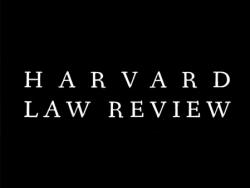
Note: Sixth Amendment Challenge to Courthouse Dress Codes (Harvard Law Review 2018)
Courthouses with dress codes require the public to conform to particular standards of attire in order to enter. They may be specific — for example, refusing entry to people wearing shorts, tank tops, hats, or clothing with writing or logos — or general — ...
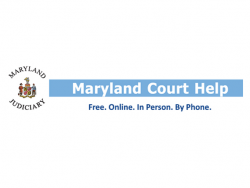
News: Self-Help Innovations in Maryland (News 2021)
The Maryland Court Help Center 2021 Provider Conference offered a glimpse into some of the cutting edge innovations in self-help in the COVID era. 1 Court Help Center Knowledge Base Maryland Court Help Providers have access to the Court Help Center Know ...
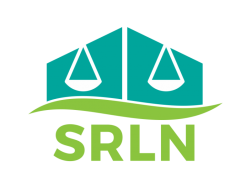
Comments: SRLN Comments to Proposed Court Rule Changes in Florida on Technology Integration (SRLN 2021)
On July 1, 2021, the Florida Supreme Court appointed Workgroup on the Continuity of Court Operations and Proceedings During and After COVID-19 filed a petition to amend the Florida Rules of Civil Procedure, Florida Rules of General Practice and Judicial A ...
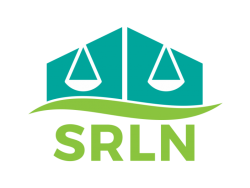
Webinar: SRLN/SCCLL A2J Webinar I/II- Access to Justice: Who’s Your Partner and Where Are You Going? (SRLN/SCCLL 2015)
Wednesday, Feb. 18, 1:00 – 2:00 p.m. Eastern Panelists: Sara Galligan, Terrye Conroy Moderator: James Durham Program Description: Partnerships are essential ways of doing business for law librarians in all types of libraries. This access to just ...
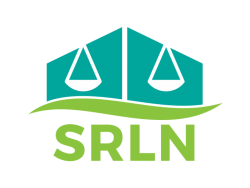
Survey: SRLN Library Working Group National Self-Help in Libraries Survey (SRLN 2013)
The Law Librarians’ Working Group of the Self-Represented Litigation Network surveyed law libraries in the summer of 2013 about their services, including self-help programs. The full survey results are available below, as well as maps of the various tiers ...
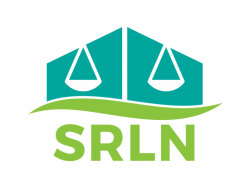
SRLN Brief: Intro to Design Thinking (SRLN 2017)
In the Access to Justice space, design thinkin g practices from the technology space are increasingly embraced to improve the way people access legal services and to improve and simplify the processes themselves. Reviewing practices around the country, we ...
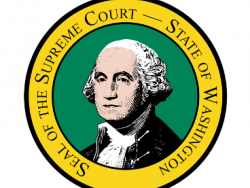
Resource: Washington Courts Access to Justice Technology Principles (Washington State Courts 2020)
In 2000, the Supreme Court of Washington issued an Order Approving Access to Justice Technology Principles, as set out in the guidance document, Access to Justice Technology Principles. The following year, in 2001, the Conference of Chief Justice's R ...
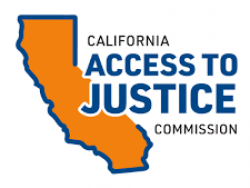
Tool: Limited Scope Risk Management Materials (California Commission on Access to Justice 2004)
The California Commission on Access to Justice developed comprehensive risk management materials to help lawyers develop ethical unbundled or limited scope practices. The materials are designed to help lawyers document their file and ensure that they and ...
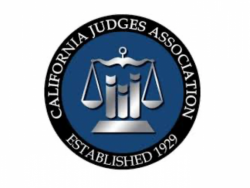
Article: 20 Things Judges Can Do to Encourage Attorneys to Provide Limited Scope Representation (California Judges Association 2003)
Published in the Summer 2003 edition of The Bench, a news journal of the California Judges Association, this article provides advice for judges who wish to encourage attorneys to provide limited scope representation, also called discrete task representati ...
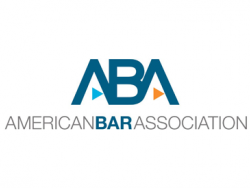
Report: Analysis of Rules That Enable Lawyers to Serve Self-Represented Litigants with Unbundling (ABA 2014)
The white paper, An Analysis of Rules That Enable Lawyers to Serve Self-Represented Litigants, was prepared by the American Bar Association’s Standing Committee on the Delivery of Legal Services. The purpose of the paper is to provide policy makers with i ...